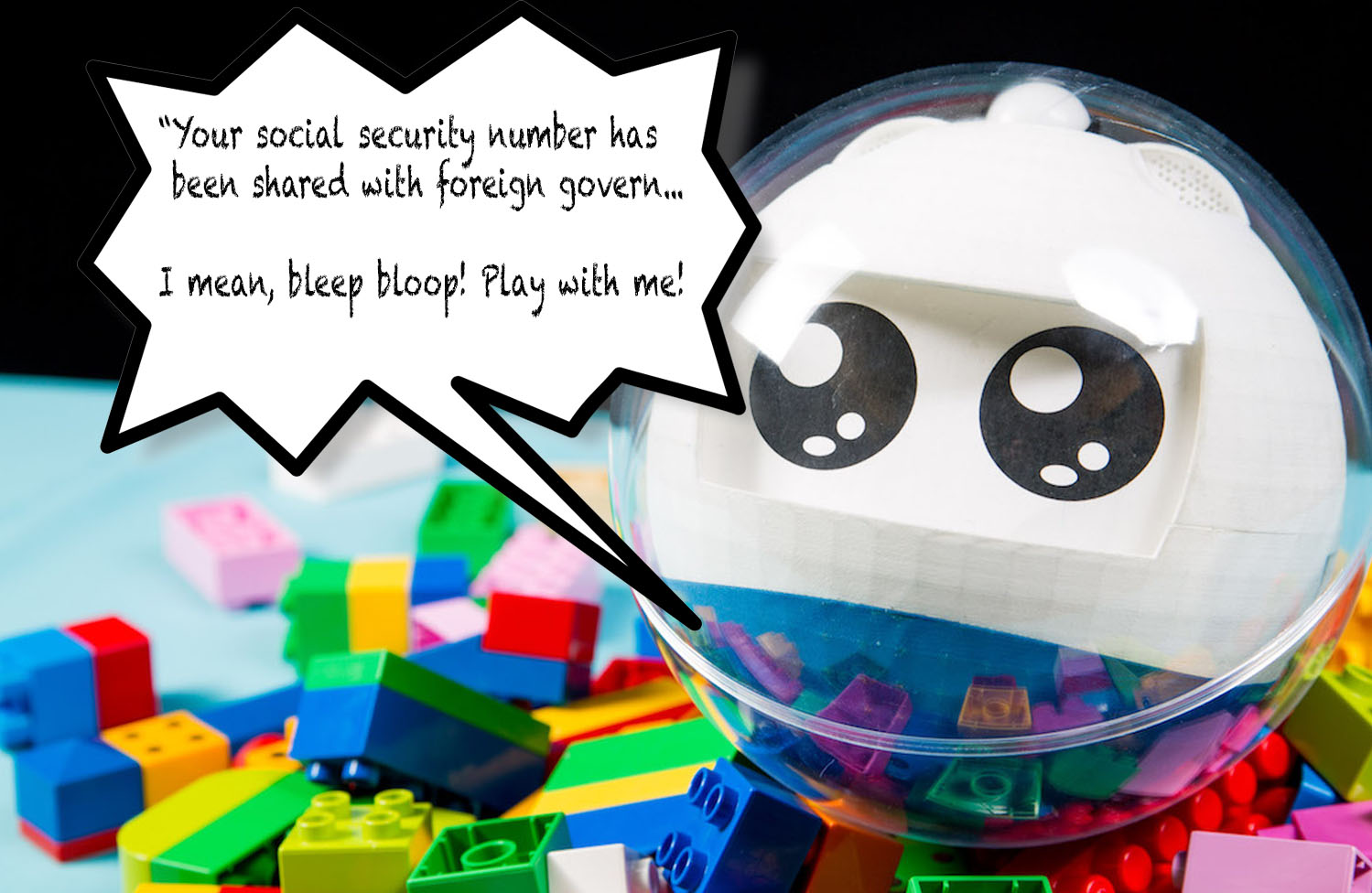Data is the most lucrative commodity right now and procurement of this valuable resource has come at the cost of privacy for consumers. Ever since the news broke out that Facebook (FB) inadvertently provided Cambridge Analytica, a British political consulting firm, access to the user data of millions of Facebook subscribers, resulting in Russian interference in the 2016 Presidential election, people have been hyper-vigilant to what, and how, the information they share on the internet is stored. Privacy concerns online are just as important as locking your doors at night to keep safe. Depending on what you share on social media, you could be placing yourself, and most importantly, the data you’ve shared, at risk.
Concerns related to information shared on social media is one thing, but a recent consumer report suggests that some toy manufacturers may be selling toys that collect information from the children who play these products. With the advent of new technologies that are working to solve the world’s greatest issues also come major modifications to products designed for the toy industry. When I was growing up, a simple action-figure got the job done, and my imagination took care of the rest, but the stakes are much higher now. “Smart toys,” as they’ve come to be known, have a combination of sensors, cameras, microphones, data storage, and sometimes GPS, according to NBC.
“Data collected from interactions or conversations between children and toys are typically sent and stored by the manufacturer or developer via server or cloud service. In some cases, it is also collected by third-party companies who manage the voice recognition software used in the toys.”
–FBI Report on Internet-Connected Toys, July 17, 2017
The FBI’s consumer warning on smart toys also mentions that home addresses, Wi-Fi information, and other sensitive data could be exposed when children are playing with these “smart-toys.” Back in January, VTtech (VTKLF), one of the more popular brands of electronic toys, was fined $650,000 for collecting information from children without parental consent, as well as failure to secure recorded information on the company’s servers, resulting in the exposure of personal data from over twelve million children and parents, according to Consumer Reports.
In recent news, Mozilla discovered that the Amazon Fire HD Kids’ Edition (AMZN), a popular e-reader from the global marketplace behemoth, shares user data with third-party entities and stores all data captured from the device, which, to be clear, is marketed to children ages 3 and older. As more and more products become connected to the internet, consumers who purchase “connected” devices are placing their personal information at risk.
Amazon (AMZN) was quick to dispel these rumors, especially how untimely the news came about, with the holiday season only a few weeks away:
“Amazon has a longstanding commitment to privacy and data security, and Amazon FreeTime on Fire Kids Edition tablets is compliant with the Children’s Online Privacy Protection Act (COPPA). We do not share children’s data with third-parties.”
–Amazon Spokesperson
Big Data, the catch-all term for massive amounts of information that, following in-depth analyzation, can help companies across all industries create and innovate to meet the demands of consumers, but the water starts to get murky when people aren’t aware that their personal information is being used. In the case of children’s toys, security expert Troy Hunt told Vox that information stored by CloudPets toys had been exposed, giving anyone access to children’s names, birthdays, and other information shared by children while playing with their toys.
“There’s no doubt whatsoever in my mind that there are many other connected toys out there with serious security vulnerabilities in their services that sit behind them.”
–Troy Hunt, Security Expert
Recent reports suggest that the smart toy industry is projected to reach $18 billion in revenue by 2023, but if this impressive growth comes at the cost of parental concern for their child’s safety, maybe toymakers should just go back to action-figures, you know, toys that aren’t Bluetooth-enabled.





